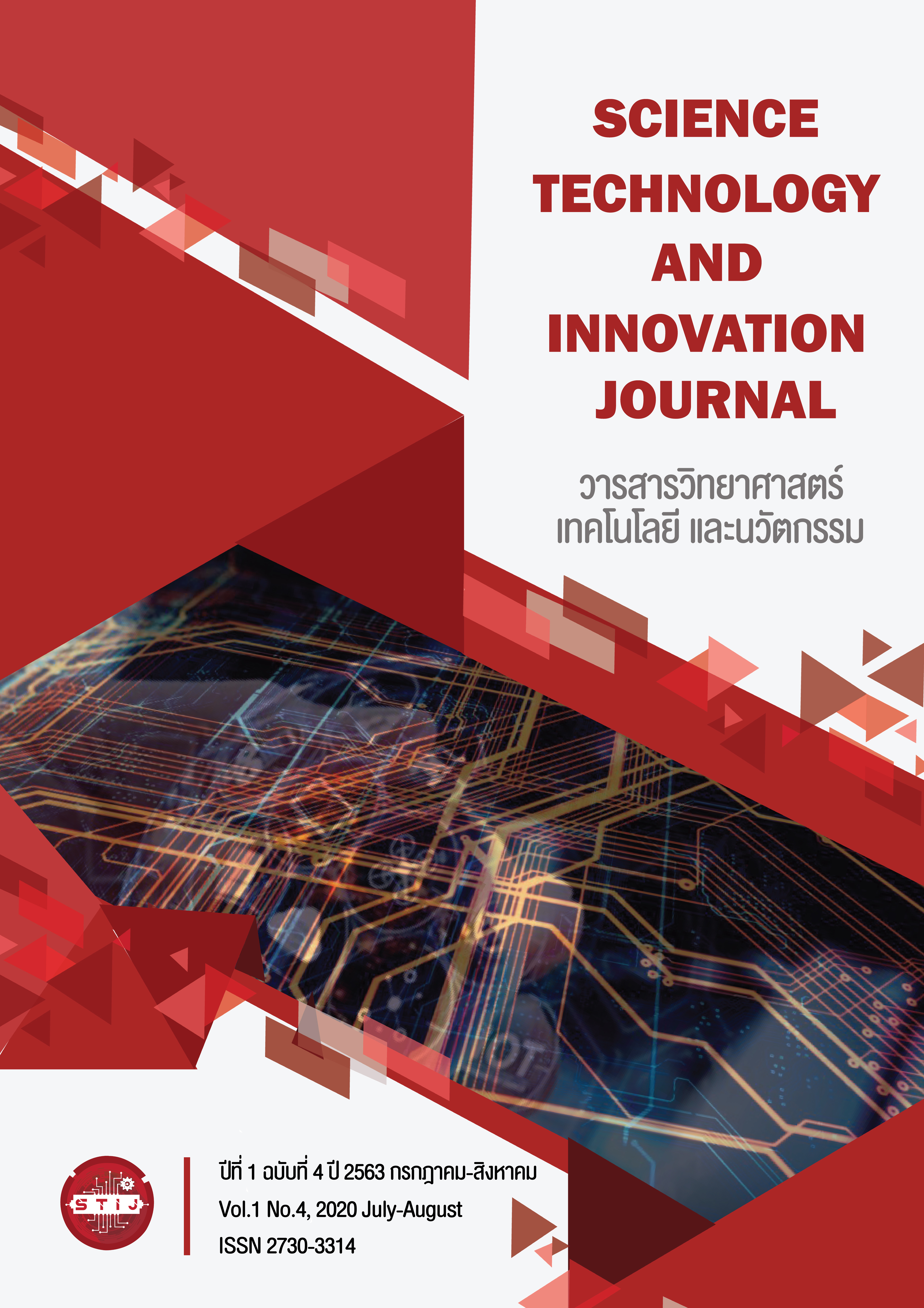Study in Removal of Hardness Groundwater by Electrocoagulation Using Aluminum Plates as Electrodes
Keywords:
Hardness removal, Groundwater, ElectrocoagulationAbstract
This study investigated the optimal conditions of hardness removal from ground water using electrocoagulation method with aluminum sheets as electrodes. Ground water in the Muban Chombueng Rajabhat University are represented Ratchaburi groundwater originated in limestone aquifer. The pH, conductivity, TDS and total hardness as CaCO3 were 7.29 ± 0.02, 997.0 ± 2.1, 495 ± 4.5mg/L and 675.0 ± 3.8 mg/L, respectively. The voltages, currents, distance between electrodes and reaction time were set. The results found that the optimal condition removing the TDS, EC and total hardness is applied voltage with current, distance between electrodes and reaction time 7.2 ± 0.3 A, 1 cm. and 60 min, respectively. The efficiencies of removal of TDS, EC and total hardness as CaCO3 on optimal condition are 74.2, 75.0 and 95.1, respectively also the total hardness value is under the criteria of the optimal quality of ground water for drinking by Ministry of Natural Resources and Environment.
Downloads
Published
How to Cite
Issue
Section
License
1. Every article published must be considered academic quality from 3 peers review experts per article.
2. The text or comments in this issue of science, technology and innovation journals belong to the author of the article. The journal organizers do not need to agree.
3. The editorial department of Science, Technology and Innovation Journal does not claim copy rights but provides references.


